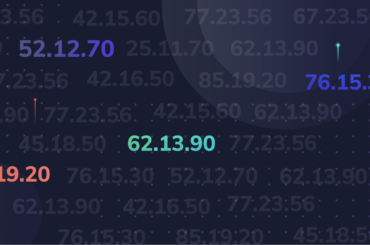Input Tax Credit (ITC) is a mechanism in GST that allows businesses to reduce their tax liability by claiming credit for the taxes paid on purchases. For job work that involves processing materials for another entity, ITC is important. It ensures that tax is paid only on the value addition and that there are no cascading taxes.
Under the definition of what is input tax credit on job work, the relevance of Form ITC-04 is crucial. This form details the inputs or capital goods sent to a job worker and those received back. It not only helps track the movements but also ensures accurate ITC claims.
Table of Contents
What Is Job Work?
Job work is a process where you, as a principal manufacturer, provide raw materials or semi-finished goods to another entity to complete a part or the entire manufacturing process. For example, suppose you are a major shoe brand; you send partially assembled shoes to smaller manufacturers, who then add the soles, completing the product.
According to the GST Act, job work refers to any treatment or process carried out by one registered person on goods owned by another registered person. That means if you send your goods to a job worker, they remain your property throughout the process.
The GST framework has been designed to recognise this relationship, ensuring that the ownership of goods in job work scenarios is clearly defined and the tax implications are properly managed.
GST has a significant impact on job work. It simplifies the tax structure and allows for input tax credits on goods sent for job work, which can lead to cost savings. Moreover, the GST rates for job work vary depending on the type of work performed and the goods involved.
What Is GST ITC-04?
GST ITC 04 is a form that registered manufacturers or principals must file as per the timeline. This form is pivotal for principals who send inputs or capital goods under the GST regime.
The primary purpose of filing ITC-04 is to maintain a ledger of goods dispatched to or received from job workers.
Filing the ITC-04 form is crucial for compliance with the GST framework. It allows for the seamless claiming of input tax credits, essential for businesses’ financial health. Moreover, it prevents tax evasion by keeping a transparent record of goods under job work.
Not only that but by declaring goods sent out and received, businesses can effectively manage their inventory and maintain accurate records for audit purposes.
How Does Input Tax Credit on Job Work?
Subject to certain conditions, the principal manufacturer can claim a credit for the tax paid on goods sent for job work. This credit is known as the Input Tax Credit (ITC) and is a critical component of the GST, enabling a smoother flow of tax credits in the supply chain.
1. Input Credit at Job Work Place of Business
The principal can claim the input credit on the goods sent for job work if the goods are sent to the job worker from the principal’s place of business. The input credit can also be claimed if the goods are sent directly to the job worker without coming to the principal’s place of business.
2. Input Credit on Job Work Effective Date
The goods sent by the principal to the job worker have to be returned to the principal after completing the job work within 1 year from dispatch. Capital goods have to be returned within 3 years from the date of dispatch. The effective date is crucial for ITC claims related to job work. It marks the point from which the time limit for the return of goods begins. For goods sent directly from the principal’s place to the job worker, the effective date is the date of dispatch. For goods that are sent directly to the job worker without reaching the principal, the effective date is the date of receipt of goods by the job worker.
3. Time Limit for Goods Return to Principal Manufacturer
The principal must receive back the goods within stipulated time limits to retain the ITC claim:
-
Capital Goods: Within 3 years from the effective date.
-
Input Goods: Within 1 year from the effective date.
4. Consequences of Delayed Goods Receipt
If goods are not received back within these time frames, they are considered a deemed supply from the effective date, and the principal must pay tax on such supply.
5. Can a Principal Directly Sell From the Job Worker’s Place?
A principal manufacturer can sell directly from the job worker’s place only if the principal declares the job worker’s place of business as their additional place of business. However, this is not required if the job worker is registered under GST too.
6. Several Machinery Dispatched for Job Work
Certain items, such as moulds, dies, jigs, fixtures, or tools, are exempt from the time limits for returning goods. This means that the principal does not need to adhere to the standard time limits for these specific items.
Key Pointer of Conditions for ITC Claim on Goods Sent for Job Work
A: Goods can be dispatched to a job worker from the principal’s place of business or directly from the supplier’s location. The principal must ensure that the goods are accompanied by a challan and that the details of such goods are reflected in Form ITC 04 in GST.
B: The effective date for goods sent to a job worker is crucial, as it determines the time limit within which the goods must be returned. When the principal sends it from their office, the effective date is the same as the date of sending. When the supplier sends it directly, the effective date is the day the job worker receives it.
C: The principal manufacturer must receive back the capital goods within three years and input goods within one year from the effective date. If the principal fails to do so, the goods are considered supplied from the effective date.
D: If goods are not received back within the specified timeframe, they are treated as a supply from the principal to the job worker from the effective date. The principal is then liable to pay tax on such deemed supply, and the challan issued is considered an invoice for this supply.
Special Provisions and Filing Requirements for Job Workers
According to the GST provisions, registered job workers must adhere to conditions similar to those of principal manufacturers. This includes the responsibility to maintain accurate records of goods received and processed.
Job workers are empowered to endorse Challans issued by principals, which specify the goods dispatched to other job workers, ensuring a transparent trail of goods movement.
Furthermore, registered job workers must file GSTR-1 and GSTR-3B returns, similar to standard taxpayer obligations. These filings reflect the outward supply of goods and services and the consolidated tax summary, respectively.
Compliance with these provisions ensures seamless credit flow and adherence to the GST’s accountability standards.
All Details on Form ITC-04
Form GST ITC-04 is a crucial declaration for registered manufacturers, known as principals. These principals need to report the following transactions:
- Goods Dispatched to Job Workers: This includes inputs and capital goods sent for job work, which may also be sent directly to the job worker’s premises.
- Goods Received From Job Workers: Details of inputs and capital goods received back from the job worker, including any losses or wastes incurred.
- Goods Sent From One Job Worker to Another: Information on goods transferred between job workers is essential for maintaining the traceability of goods.
What Is the Due Date of FORM GST ITC-04?
Historically, the Form ITC-04 was filed quarterly. However, a significant change occurred post-September 2021. The form transitioned to a half-yearly and yearly filing schedule based on the principal’s annual aggregate turnover (AATO). For those with an AATO exceeding ₹5 crore, the form is due half-yearly, with deadlines on 25th October and 25th April for the respective periods. Conversely, for principals with an AATO up to ₹5 crore, the form is now due yearly on 25th April, starting from FY 2022-23.
Advantages of ITC-04 Filing
1. Seamless Compliance:
Job work ITC-04 filing aligns with GST regulations, ensuring smooth compliance. It mandates accurate reporting for the movement of goods to and from job workers, which is essential for maintaining transparency and adhering to tax laws.
2. Optimal Utilisation of Input Tax Credit (ITC):
Businesses can claim Input Tax Credit on goods sent for job work through proper ITC-04 filing. This practice directly reduces tax liabilities, enhances financial efficiency and enables more strategic fiscal planning.
3. Enhanced Supply Chain Management:
Form ITC-04 is a crucial tool for tracking goods within the supply chain. Its role in managing the movement of goods helps reduce bottlenecks and elevate supply chain efficiency, leading to more streamlined operations.
What are the Details to be Furnished in ITC -04 under GST?
GST ITC-04 is a crucial form related to goods sent for job work and plays a vital role in monitoring the movement of goods and ensuring adherence to tax compliance.
1. Details of Input/Capital Goods Dispatched for Job-Work
When detailing the dispatch of input/capital goods to job work, include information such as GSTIN, challan number, tax amounts, etc. Accurate documentation helps monitor the movement of goods and ensure adherence to tax compliance.
2. Goods Returned or Dispatched From Job Worker’s Premises
When goods are returned or dispatched from the job worker’s premises, the principal must furnish the job worker’s GSTIN, challan number, and tax amounts. This information is crucial for maintaining accurate records and ensuring seamless compliance with ITC Rules under GST.
What Documentation Is Required to Claim Input Tax Credit on Job Work?
To claim the input tax credit on job work and ITC 04, the following documents are required:
-
Valid GST Registration document
-
Tax Invoice or Debit Note
-
Form GST ITC-04
-
Challans
How to File GST ITC-04 in the GST Portal?
Step 1: Login to the GST Portal
Access the GST portal at www.gst.gov.in and log in with your credentials.
Step 2: Navigating to ITC Forms
Navigate to ‘Services’ > ‘Returns’ > ‘ITC Forms’.
Step 3: Preparing and Uploading Invoices
On the ‘GST ITC Forms’ page, select the ‘PREPARE ONLINE’ option for the ITC-04 form. If you have more than 500 challans, use the ‘PREPARE OFFLINE’ functionality to upload them.
Step 4: Initiating the Filing Process
After uploading, select ‘Initiate Filing’ to begin the submission process.
Step 5: Selecting the Tax Period
Choose the correct financial year and tax period from the drop-down menu before proceeding.
Step 6: Verification and Details Check
Ensure all details, especially taxable amounts, are accurate. This step is crucial to avoid future discrepancies.
Step 7: Filing the Return
Complete the process by filing the return using a Digital Signature Certificate (DSC) or Electronic Verification Code (EVC).
Timeframes and Compliance:
Goods must be returned within specific timeframes: 3 years for capital goods and one year for input goods from the effective date. Compliance is vital for maintaining business integrity.
Common Errors and Troubleshooting:
Some of the common errors may include incorrect challan details or mismatched information. Double-check all entries and consult the GST helpdesk for assistance with troubleshooting.
Conclusion
Understanding the input tax credit is key for businesses operating in job work under the GST rules. The process ensures tax liability reduction by crediting taxes paid on purchases, enabling a seamless flow of tax credits. Form ITC-04 acts as a vital tool, meticulously detailing the movement of goods to and from job workers, thereby facilitating accurate ITC claims and compliance with GST regulations. By comprehending this guide, businesses can confidently navigate the complexities of ITC on job work, ensuring financial efficiency and regulatory adherence.
Frequently Asked Questions (FAQs):
1. How can I download the ITC 04 form?
To download the ITC 04 form, visit the GST portal at www.gst.gov.in. Navigate to ‘Downloads’> ‘Offline Tools’> ‘ITC-04 Offline Tool’ option and click on it. You must then unzip the downloaded file to obtain the ITC_04_Offline.xls Excel sheet.
2. What is the error received but pending in ITC 04?
If any errors are found during the filing of ITC-04, an error file will be generated, which should be downloaded from the portal. Next, you need to open the ITC-04 offline tool. Once opened, go to the ‘Import Export file’ sheet and select ‘Import data from File’ to bring in the error file. After that, you can make any needed changes.
3. Who is eligible to claim Input Tax Credit on job work transactions?
The principal (the person who sends goods for job work) can claim the input tax credit under GST on job work transactions. The goods sent must be obtained back by the principal before a year (3 years for capital goods) to enjoy the GST input tax credit utilisation.
4. What happens if ITC-04 is not filed?
If ITC-04 is not filed, the GST authorities can levy a penalty of up to ₹25,000. Additionally, they may demand the payment of taxes and interest or suspend the taxpayer’s registration.
5. Is it mandatory to file nil ITC 04?
Filing of NIL ITC-04 is not mandatory. If there are no job work transactions during a period, you do not need to file ITC-04.
6. When is the deadline for filing the ITC-04 form?
The due dates for half-yearly filings are 25 October and 25 April. The due date for yearly filings is 25 April.
7. How does the reverse charge mechanism apply to Input Tax Credit on job work transactions?
As per the reverse charge mechanism under GST, the receiver of goods becomes liable for paying the tax. The tax paid under RCM can be claimed as ITC if such goods or services are utilised, or will be utilised, for business.




